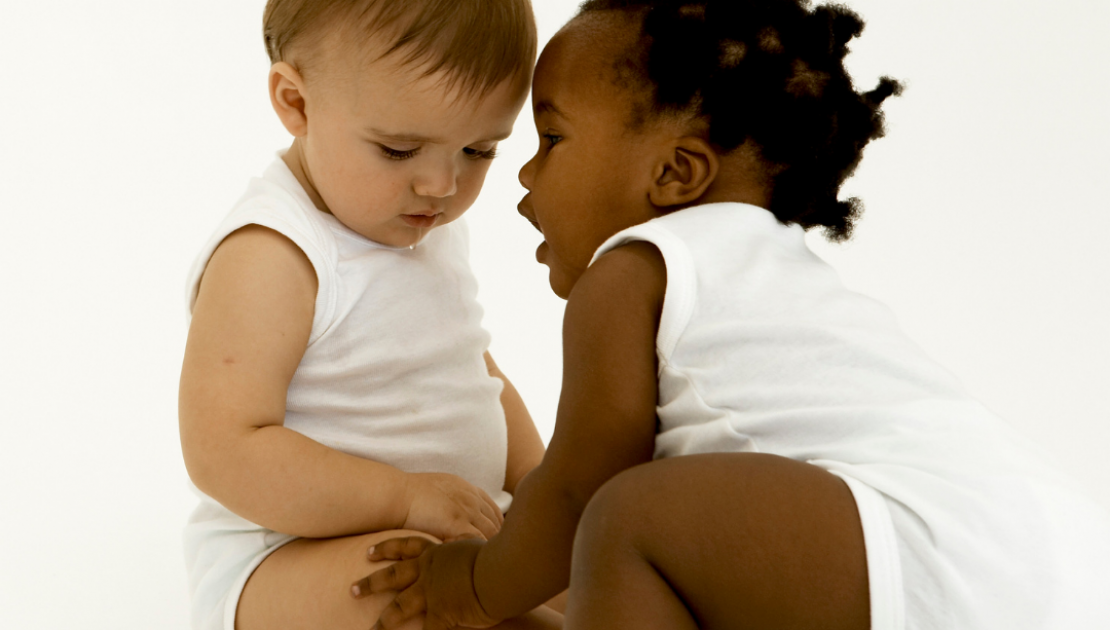

Language Development in Little Ones
Waiting for babies first words is such an exciting time for parents. But how do babies learn to talk? And what can parents do to support the development of communication in their babies and toddlers.
Speech, language and communication are also important to a whole range of other developmental areas and learning including social interaction, problem solving, literacy and numeracy. However, did you know that 1 in 10 children have a speech and language difficulty or delay in learning to talk and in fact speech delay is the most common developmental delay? Not surprisingly toddlers who have difficulties with communicating have increased tantrums as they can struggle to communicate with those around them.
Language development encompasses much more than just words and how children pronounce them. Understanding words, social interaction and use of gestures are all key parts of early language development. Children learn language from interaction; which is why children who are bilingual can easily learn two languages without being specifically ‘taught’. One common myth around language development is that bilingualism causes language difficulties, this isn’t the case at all and growing up bilingual is such a benefit for children. The best way for parents to support children learning two languages is to talk to their little one in the language that they feel most fluent and comfortable as is important for children to hear a fluent model of language.
Babies are amazing and they learn so much about communication long before they are saying any words. In their first year they are developing important skills that help lay the foundation for the development of speech language and communication. From a few months old babies are interested in looking at your face and listening to your voice. From birth babies make a range of noises which over time start to have a clearer purpose and might mean something to you for example cooing sounds to express happiness.
Typically, children aged 12-18 months are able to:
- Understand some simple questions like ‘where’s your nose?’
- Say up to 20 words (they might not sound clear)
- Babble and sing to themselves
- Use gestures such as waving, reaching, pointing and blowing kisses.
Typically, by age 2 you can expect that your child will
- Understand between 200-500 words
- Copy sounds and words
- Use at least 50 words and start linking words together
- Enjoy pretend play such as feeding dolly
www.ican.org.uk have more milestones on their websites. Remember that children develop at different times and that a delay to speech and language can be very common. If you have any concerns about your little ones language development talk to your health visitor.
As a parent you don’t need to ‘teach’ your child to talk, but there is lots that you can do to support language development.
Try incorporating some of these tips into your everyday routines and activities:
- Be face to face and at your child’s level when you chat and play
- Follow your little one’s interest in play
- In young babies copy the sounds that they make
- As your child gets older try to resist the temptation to ask lots of questions; asking ‘what’s that’ all the time doesn’t always lead to two way interaction and little conversations. Instead of asking what do you want offer a choice e.g. do you want milk or water. Make lots of comments on what your child is doing so instead of saying ‘what are you doing?’ say ‘you are splashing!’ By commenting and adding language to what your child is doing you are helping them to hear and learn new words.
- Use gestures – for little ones baby sign classes are really helpful
- Join in and play.
Jennifer Warwick is a speech & language consultant. She founded Communicate & Thrive, at platform that offers of courses, workshops & training in speech, language & communication skills for little ones.
You can follow Communicate & Thrive on Instagram here.